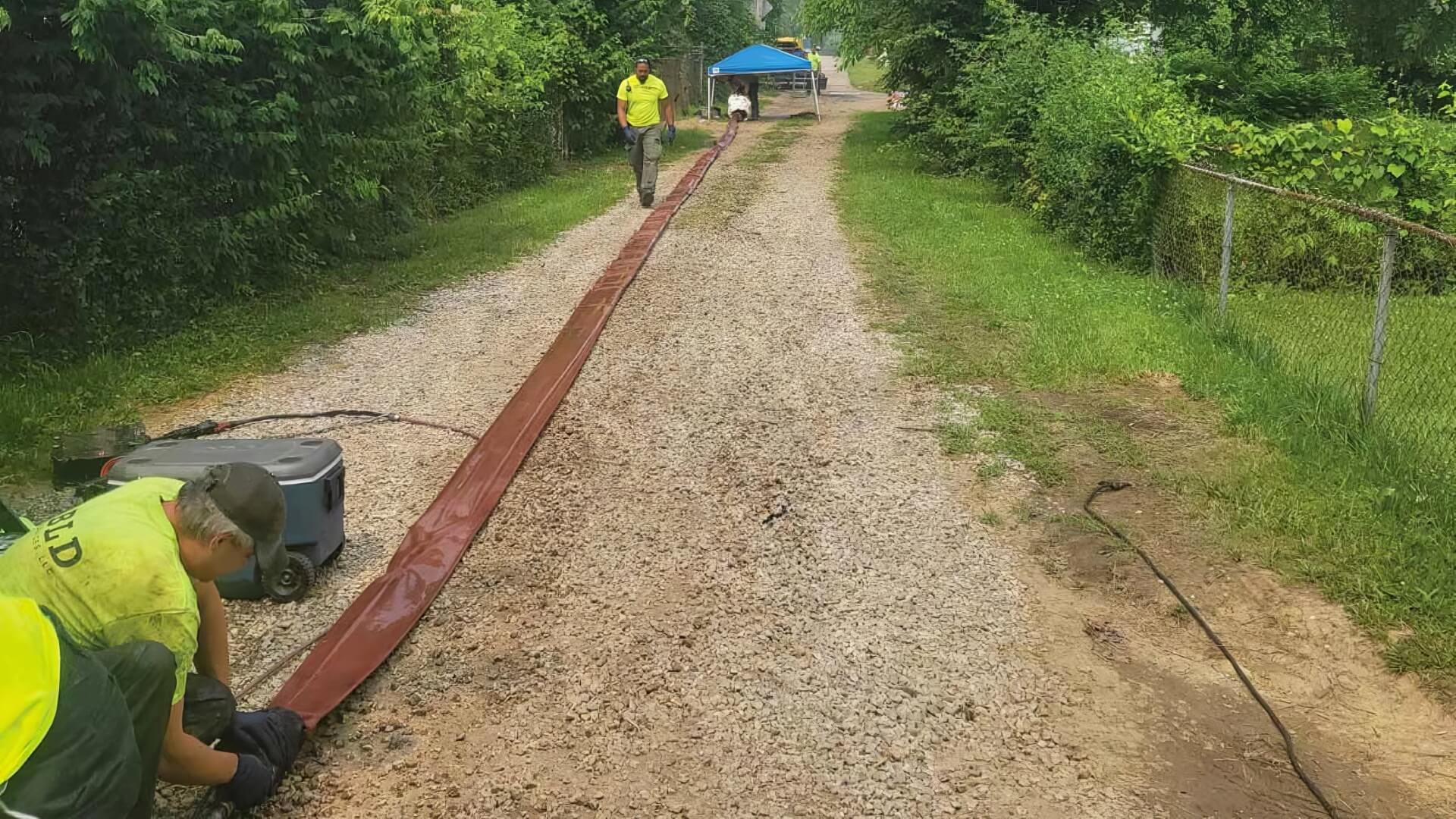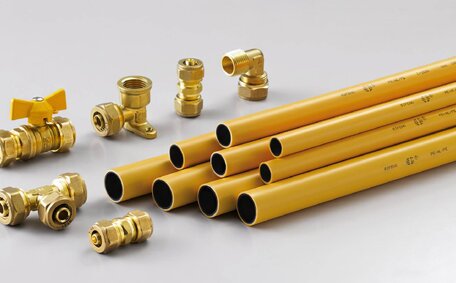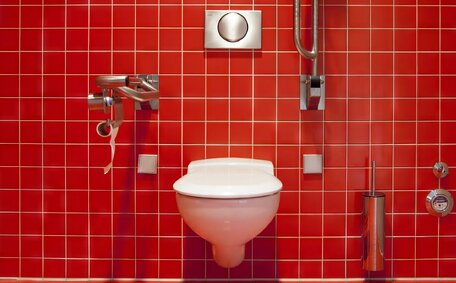Determining When It’s Time to Replace Your Hot Water System
Water heaters typically have a lifespan of 8 to 12 years, post which their performance can deteriorate. As your system ages, you may notice signs indicating it’s time for an upgrade such as:
- Frequent breakdowns and pilot light repairs
- Increasing energy bills due to inefficiency
- Rust, corrosion, or leaks
- Long wait times for hot water
- Loud noises during operation
Upgrading to a new hot water system after a decade can significantly improve efficiency and functionality. New hot water tanks can be over 30% more efficient, potentially reducing annual energy costs. Advances like heat pump and tankless water heaters provide faster hot water while using less energy.
Prior to replacing your system, consult a licensed plumber to ascertain if a new installation is necessary. They can provide recommendations on suitable new systems based on your household’s hot water usage and home layout.
Dangers of Improperly Disposing of Hot Water Systems
Failing to properly dispose of your outdated hot water heater could inadvertently pose environmental hazards. Figuring out how to dispose your hot water heaters is crucial as they contain hazardous materials like refrigerants, insulation, mercury from thermostats, and lead solder. Without proper disposal, these toxic substances risk seeping into soil and groundwater.
It’s crucial to remove all hazardous components from the system before disposal. This includes safely capturing and degassing any refrigerants if your unit uses heat pump technology, as well as inspecting the anode rod. To properly dispose, thermostats, insulation, and other parts should be removed and handled as hazardous waste.
General rubbish bins are also unsuitable for disposal as they may break open during collection and transportation, risking contamination. Ideally, contact your local council for expert disposal of water heaters in line with regulations and recycling options available locally.
Ignoring responsible disposal procedures for hot water tanks can necessitate junk removal services to sidestep substantial fines under NSW Environment Protection Authority regulations; see our responsible disposal guidelines for comprehensive information. Always confirm the preferred method for recycling old hot water heaters with your council waste management team.
Preparing Your Hot Water System for Disposal
Before disposing of your dated hot water system, consider the necessary steps to ensure it is handled safely and appropriately. Here are some key steps:
- Cut off the electricity and fuel supply - Switch off the power at the switchboard and shut the gas valve for the water heater.
- Drain the tank by opening the pressure relief valve and drain valve, allowing a full day for it to empty.
- Detach plumbing lines - Disconnect the cold inlet and hot water outlet pipes attached to the tank.
- Remove accessories - Take off attached components like expansion control valves, insulation wraps and monitoring systems if present.
- Extract remaining hazardous materials - Check for parts containing hazardous substances like thermostats and safely remove them.
Taking these preparatory steps ensures safe handling and complies with responsible recycling procedures. Remember to use caution when managing heavy tanks or parts containing hazardous content.
Once prepared, contact energy star approved metal recyclers or engage a disposal service to manage the pick-up of your old water heater. Provide details on make, model and tank size to determine any value compensation from scrap metal companies.
Draining and Degassing the Tank
To transition from your heater to a new system, first properly drain and dispose your old hot water system’s tank before disposal:
- Turn off the tank’s water, electricity, and gas supply.
- Connect a hose to the water tank’s drain valve and route it to a floor drain or outside area.
- Open the pressure relief valve first, then slowly open the drain valve.
- Allow the tank to fully drain, which can take up to a day.
For heat pump water systems, a licensed technician must correctly degas refrigerant lines to safely capture refrigerant prior to disconnecting. Failing to do this properly releases harmful gases into air.
After draining the tank thoroughly, proceed confidently with disconnecting the plumbing and preparing for your water heater’s removal. Ensure that hazardous components such as thermostats are properly removed and disposed of first. An empty tank may have value as scrap metal when brought to a local recycling centre.
Removing Valuable Metal Components
Be aware that your old water heater’s metals might be valuable at scrap yards. Pre-disposal, it is judicious to strip the aluminum brass, copper, and steel parts to vend individually.
Begin by identifying any brass fixtures, copper steel components, or sections that can be unscrewed or detached with basic hand tools. Discover more about the valuable components commonly found connected to inlets, outlets, heating elements, and temperature controls.
Ensure complete water removal, material recycling and safe capture of hazardous substances during disposal. Wear gloves and eye protection when handling. Place removed materials into buckets or bins marked for each metal type for easier sorting and cleaning later.
After removing valuable parts, utilise appliance removal services to ensure they are transported to local metal recycling centres. Sort by each material to maximise scrap payouts, which vary based on daily rates. Ultimately, considering the high market value of copper, the waste materials from water heater components might potentially yield $5 - $10, depending on how much they weigh.
Ensure to clean and drain parts fully before recycling. Recycling centres may reject uncleaned items or reduce offered rates.
Environmentally Responsible Disposal Options
When it comes time to dispose of your old hot water system, there are several eco-friendly options to consider:
Recycling Centres
Local councils often have recycling centres dedicated to eco-friendly water heater disposal. Efforts are made to ensure disposed your old systems of hazardous wastes during the recycling process.
These establishments will appropriately disassemble the systems, isolating valuable metal components for recycling, thus optimising heater disposal. Contact your local council to find out how your system can be disposed at the approved recycling center in your area.
Scrap Metal Yards
Scrap metal dealers might transact the purchase of seasoned systems by weight, which can make the recycling of your old water heaters a green endeavour. Make sure to drain all water and detach any accessories first for full value. You may also earn extra for sorted non-ferrous metals like copper or brass.
Special Waste Collection
Some councils offer scheduled pick up services where a heater can be collected alongside other e-waste and hazardous household items. Employ your mobile devices to reach your municipal waste division and investigate whether they retrieve and ethically dispose of old heaters, including the batteries mobile phones contain. Fees may apply for this service.
By recycling correctly, we help divert hazardous materials from the waste stream and prevent environmental damage.
Recycling and Scrap Metal Yards
Several scrap yards and recycling centres accept water heaters for recycling. This allows the metal components like copper pipes and steel tanks to be recovered and reused instead of taking up space in landfills.
Before dropping off your old unit, call ahead to confirm the centre accepts hot water systems. Verify their prerequisites for handover - ascertain if they accept the system post-drainage.
There is often a free drop off service to recycle old heaters, but some places may pay a small amount for the scrap metal by weight depending on market rates.
You can find nearby metal recycling yards by undertaking an online search or having us call your local council for recommendations. Remember to reach out for assistance if you need help to remove fittings, accessories, and hazardous materials from tanks before heading to dropoff points. Proper recycling saves natural resources and prevents pollution from toxic substances entering water supplies or the environment.
Hazardous Waste Pickup and E-Waste Recycling
It is crucial to transport your old hot water systems to facilities equipped for specialised disposal. In the Coogee area, the Eastern Suburbs Hazardous Waste Facility accepts items like heaters, air conditioners, and other e-waste containing dangerous substances.
They expertly remove and properly dispose of hazardous components such as refrigerants and thermostats. Tanks are drained, dismantled, and can recycled responsibly. There may be drop-off fees depending on the item size.
Residents may arrange Council Cleanup services for appliance and hazardous waste collection, noting potential disposal fees. Fees apply based on volume and item types. This includes retrieval of hot water systems, washers, dryers, ovens, and other white goods e-waste.
Safely disposing of hazardous waste instead of landfilling prevents contamination of soil, air, and waterways. Check with your local council on available hazardous waste and e-waste recycling services.
Hiring Professional Removal and Installers
Engaging professional plumbers for removal and installation of new water heaters is highly advisable. Trying to remove a water heater on your own can be dangerous if not done properly.
Licenced professionals from companies like Coogee Plumbing have extensive training and experience in:
- Safely disconnecting electrical and gas water connections, along with plumbing lines
- Properly capturing hazardous wastes in gas hot water systems
- Degassing refrigerant systems
- Managing and disposing of heavy old tanks
- Installing modern, efficient new hot water heater systems
This expertise ensures compliance with all local guidelines, safeguarding your water tanks from potential hazards. Attempting a DIY removal risks fines, injuries, contamination, or installation mistakes.
Many plumbers offer comprehensive removal and disposal services for your old heaters along with the installation of new systems. Get in touch with Coogee Plumbing today at 1300 349 338 for upfront pricing to get rid of your old system and replace it with a modern hot water system by qualified technicians.
Asking Installers About Disposal Services
Confirm if the installation company includes removal and disposal of your old unit when booking a new system installation. Many plumbing professionals, like Coogee Plumbing, may include this for convenience and to ensure proper, eco-friendly disposal.
As you journey through the quotation process, enquire distinctly about the installers’ protocol for managing your antiquated water heater in the context of your house. There may be small fees involved with disposal or recycling credits for recovered scrap metal.
Find out if they depressurize, drain, and disconnect the tank onsite and if they transport it away for recycling or safe hazardous waste disposal.
Having the installing plumber handle the entire replacement process reduces liability and effort on your end. Their teams are trained in safe removal techniques and compliant disposal methods. You can feel confident your old system won’t end up contaminating landfills or the environment when professional services manage the changeover.
Coogee Plumbing offers full-service installation of new energy efficient hot water heaters along with removal of old units. Contact our water heater specialists at 1300 349 338 to learn about replacement options or email us at [email protected].
Comparing Removal Costs
When it’s time to replace your hot water system, consider whether to undertake the removal yourself or engage a professional service. There are costs to weigh with both options.
A DIY removal spares the added fee of a plumber, but risks injury if you’re not trained in proper handling techniques.
Hiring an installation service like Coogee Plumbing often includes removal and responsible recycling of old systems as part of replacement packages. While adding a cost that might give you pause, it’s more than offset by your annual coffee expenditure and saves labour on your end while ensuring aboveboard disposal. Considering all factors, professional removal services make replacement jobs simpler and safer.
Safety Precautions When Transporting and Handling
Employ safety measures when transporting an old hot water system to prevent injury. Water heaters can weigh over 100 kg, making them difficult to manoeuvre without proper technique and equipment.
Wear protective gloves, closed-toe shoes, and back support when lifting to rid your old system safely. Carefully tilt and roll the unit using leg strength, keeping it close to your body to minimise strain when you take your heater to disposal. Use dollies or furniture sliders under the base if needing to lower the system down stairs.
Secure the appliance firmly before transporting by truck or trailer so it doesnt shift. Tie it down with ratchet straps threaded through the metal frame or encircle with moving blankets. Drive slowly and take wide turns to reduce inertia forces during transport.
Most vendors, including Coogee Plumbing, offer a professional removal service when replacing your hot water system. Their expertise and equipment helps transport old units safely.






